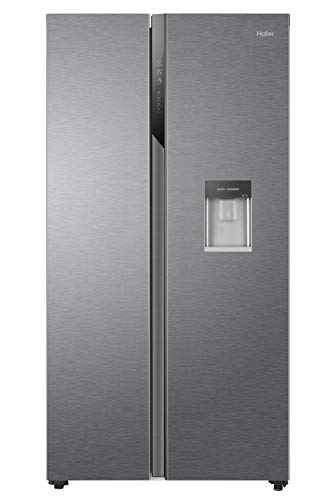The Comprehensive Guide to Refrigerators: Types, Features, and Maintenance
Refrigerators, commonly described as fridges, play a pivotal function in modern households by protecting food, decreasing waste, and preserving a comfortable living environment. These important kitchen area devices have evolved substantially for many years in terms of innovation, performance, and style. This post aims to provide a detailed summary of the different kinds of fridges, their features, and pointers for upkeep, making it an essential resource for property owners.
Types of Refrigerators
Fridges come in numerous designs and configurations, each dealing with different requirements and choices. Below is a summary of the most common types of fridges available on the marketplace today.
| Type of Refrigerator | Description |
|---|---|
| Top-Freezer | This is the classic fridge style where the freezer compartment is found on top. It is generally the most budget-friendly choice, making it popular for budget-conscious customers. |
| Bottom-Freezer | In this style, the freezer is situated at the bottom, enabling easy access to fresh products at eye level. Best Fridge Online pull-out drawers for much easier company. |
| Side-by-Side | This design has the freezer and refrigerator compartments set up vertically next to each other. It offers easy access to both areas and often features water and ice dispensers. |
| French Door | Combining the advantages of a bottom-freezer design with wide doors on the refrigerator area, French door fridges use sufficient space and versatility, making them ideal for big households. |
| Compact | Also understood as mini-fridges, these smaller sized units are best for dorm spaces, offices, or as secondary refrigerators in homes. They have actually limited storage however are energy-efficient. |
| Smart Refrigerators | Geared up with wise technology, these fridges use features such as touch screens, internet connectivity, and app controls. They can offer notifications for ended food and other smart functionalities. |
Secret Features to Consider
When choosing a refrigerator, it is essential to consider different features that can boost usability and effectiveness. Here are some crucial functions to look for:
Energy Efficiency
- Try to find models with an Energy Star score to guarantee energy effectiveness and minimized energy costs.
Storage Options
- Adjustable shelves, door bins, and particular compartments for fruits and veggies boost the versatility of storage.
Water and Ice Dispensers
- Many side-by-side and French door models feature built-in water and ice dispensers, supplying convenience and motivating hydration.
Temperature level Control
- Exact temperature control enables property owners to set optimum conditions for various food products.
Smart Features
- Functions like touchscreen user interfaces, Wi-Fi connectivity, and built-in cameras to help manage grocery stocks make wise fridges appealing.
Sound Levels
- Think about designs with low operational noise, particularly if the cooking area is open to the living location.
Maintenance Tips for Refrigerators
Appropriate upkeep can extend the life of a refrigerator and ensure ideal performance. Here are some useful upkeep suggestions:
Regular Cleaning:
- Clean the interior and exterior surface areas of the fridge with moderate soap and water a minimum of when a month.
- Remove spills instantly to prevent odors and germs development.
Temperature Settings:
- Maintain your refrigerator at a temperature between 35 ° F to 38 ° F and the freezer at 0 ° F for optimum food preservation.
Examine Door Seals:
- Inspect the door seals occasionally for fractures or tears. A faulty seal can cause energy loss and increased electrical energy expenses.
Defrost Regularly:
- For manual defrost models, thaw the freezer when ice develops up to lower the device's work.
Condenser Coils:
- Clean the condenser coils at the back or beneath the refrigerator every 6 months to improve efficiency.
Keep it Level:
- Ensure the refrigerator is level for proper door alignment and to avoid vibrations.
Regularly Asked Questions (FAQs)
1. How long should a refrigerator last?Typically, a refrigerator can last anywhere from 10 to 20 years, depending on the brand name and upkeep practices.
2. How can I enhance the energy effectiveness of my refrigerator?To improve energy efficiency, keep the fridge's temperature settings ideal, regularly tidy the condenser coils, and prevent putting hot food inside.
3. What kind of refrigerator is best for small cooking areas?Compact or counter-depth models are perfect for small cooking areas as they offer adequate storage without occupying too much space.
4. Are clever refrigerators worth the investment?Smart fridges can be worth the financial investment if you value convenience and technology. They use performances like stock management and remote gain access to, which accommodate tech-savvy users.
5. How can I repair a refrigerator that is not cooling properly?Start by examining the temperature settings, ensuring the condenser coils are tidy, and validating that the door seals are intact. If these do not fix the concern, think about calling an expert service technician.
In conclusion, refrigerators are indispensable devices that play an essential role in preserving food and keeping a healthy way of life. With a variety of types and features readily available, it is necessary for customers to select a model that lines up with their particular requirements. By understanding the choices and adhering to upkeep best practices, homeowners can enjoy the advantages of their fridges for several years to come.

